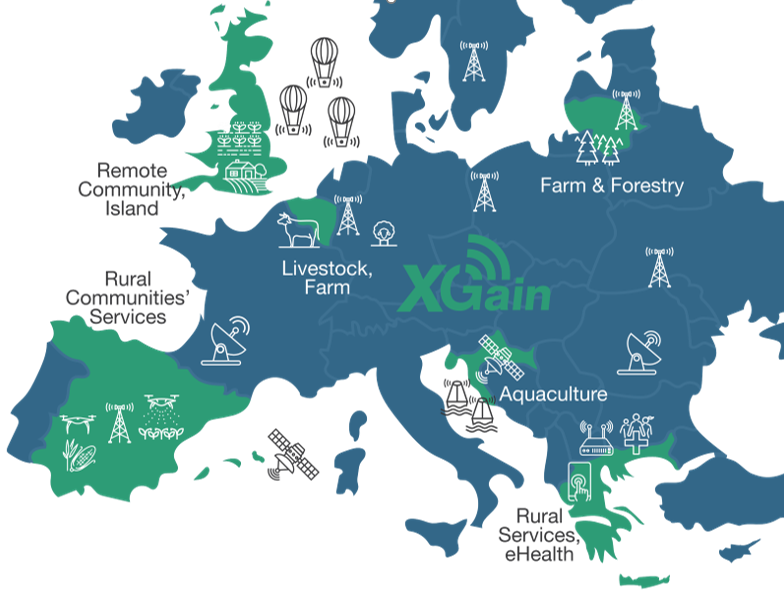The mix of technology and social innovation have a significant impact on improving the quality of life for individuals, societies and sectors. It drives advancements in agriculture, healthcare, communication, transportation, education, and other sectors contributing to the world of ideas and and concrete needs. That’s why XGain has made sure to involve a wide range of stakeholders in its workshops. XGain is a project funded by the European Union that aims to improve rural, coastal, and urban areas by providing access to smart solutions for internet and computing. At the core of the XGain project is the idea of understanding what the end users really need. The partners brought together people from farming, forestry, and care sectors to discuss and help create the XGAIN Knowledge Facilitation Tool (KFT) and other solutions that would work for them.
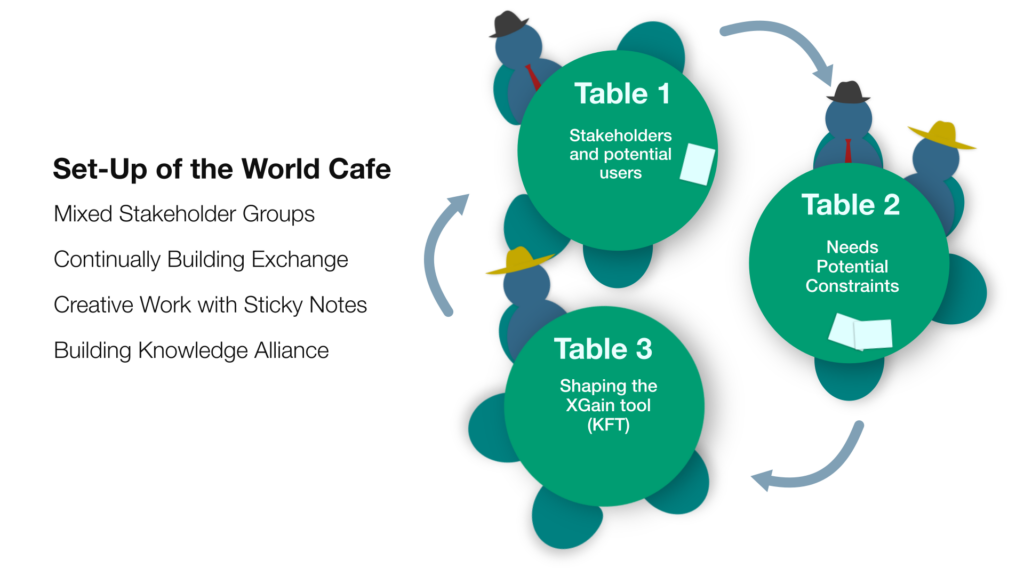
Co-creation helps to make innovation more legitimate and ensures that everyone involved takes ownership or responsibility for the outcomes. For example, the European Commission uses co-design to engage the public in responsible research and innovation (RRI). This means working together with citizens and organis ations from civil society to shape the future, and involving a wide range of people who don’t usually interact with each other on matters related to science and technology.
Initially, XGain partners engaged in mutual learning and strategic visioning sessions during an internal meeting and workshop series. These sessions provided an opportunity for reflection on approaches and processes, shaping the objectives and outcomes related to the use cases discussed subsequently.
The project aimed to enhance collaboration and engagement across different sectors, moving from a Triple Helix model to a Quadruple Helix model. This transition involved incorporating civil society, represented initially by NGOs, into the project’s co-creation process. By including various stakeholder groups, XGain sought to develop meaningful and valuable solutions while considering community perspectives.
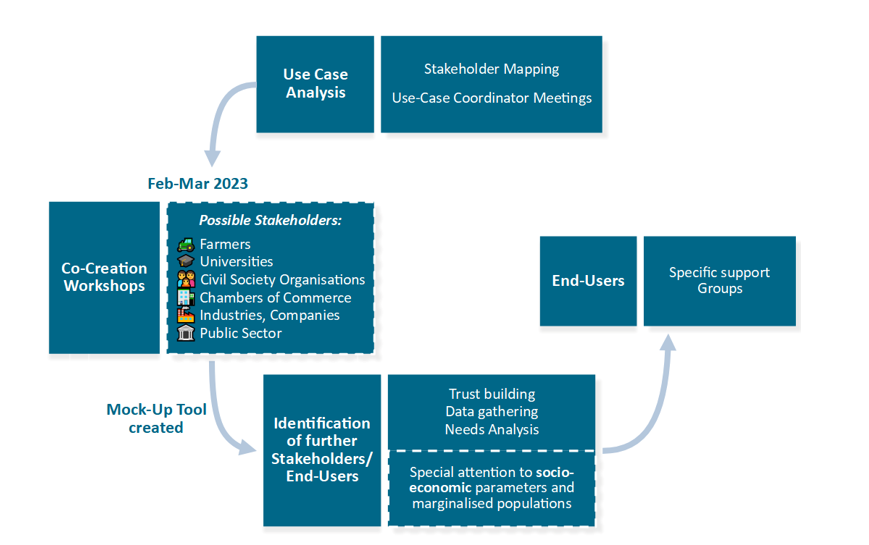
The project’s approach also focused on fostering social value chains, extending beyond traditional industry activities to address broader impacts on local communities. To facilitate this, short-term Pop-up co-creation labs were implemented in five regions, bringing together stakeholders to collaboratively generate knowledge and outcomes within a limited timeframe. These compact workshops aimed to deliver results in a focused environment.
Drawing from experiences in European projects like LIVERUR, RIPEET, BLOOM, and others, the co-creation concept aimed to promote collaboration at local, regional, and trans-regional levels. Participants in the labs contributed diverse expertise, including target, system, and transformational knowledge, laying the groundwork for socially accepted changes through XGain solutions and services.
These co-creation workshops are an opportunity for everyone involved to work together and shape the project’s direction. By using various methods and listening to feedback, these workshops were crucial for ensuring the project’s success. The process comprised mainly two steps:
- Stakeholder Mapping: The process started with a stakeholder mapping for each pilot, which aimed to identify and categorize stakeholders relevant to the XGain project. This involved consulting with task leaders within the project to define key stakeholder categories and criteria. Stakeholders were grouped based on their organizational type, territorial scale, representation, and relevance to XGain objectives. This mapping provided a foundation for engaging stakeholders and understanding their roles and needs. Certain use cases extended their reach to encompass stakeholders in tourism, local services, agriculture, and environmental protection, fostering a multidisciplinary perspective.
- Co-Creation Workshops in the XGain Pop-up labs: The main component of the co-creation process was the series of workshops held in different regions. These workshops, often referred to as “Pop-up co-creation labs,” provided a platform for stakeholders to come together and collaborate on solving specific challenges related to XGain use cases. The workshops utilized methodologies such as the World Café concept to facilitate small-group discussions and idea exchange. Participants engaged in activities such as needs analysis, solution co-creation, and trust-building exercises.
By bringing together different groups like community members, academics, government, and private sector, the project was able to get lots of different perspectives. This process also helped build technical skills to create the XGain Knowledge Facilitation Tool (KFT) and specific solutions for five different situations in Europe, each at different stages of development.
Another focus of the workshops was the co-creation of the XGain Knowledge Facilitation Tool (KFT) After these activities, an online survey was adressed to cores stakeholders from each pilit to get more input on designing the KFT tool. While these workshops and surveys helped outline the project and the KFT, some users suggested features that were not part of the project’s plan.
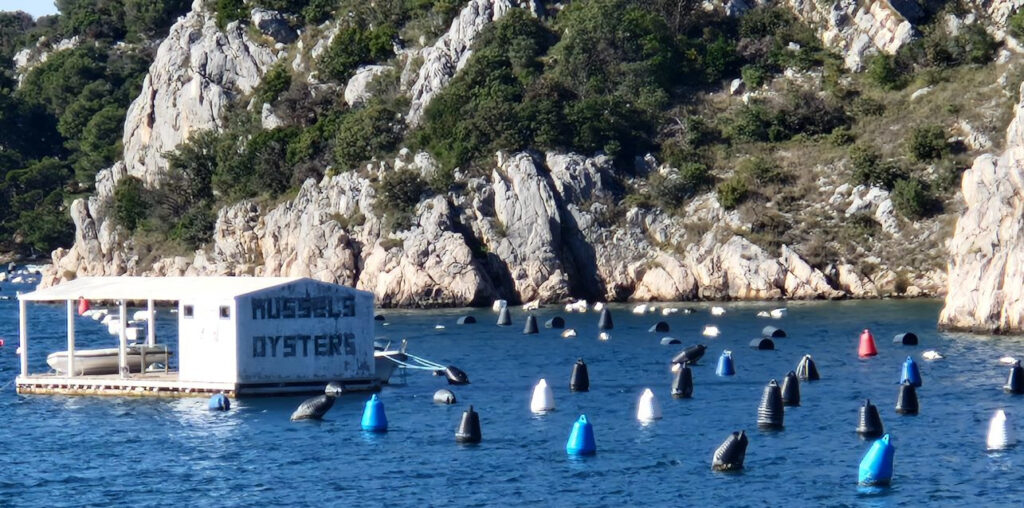
After being carefully analysed, the feedback from all six use cases are as follows the findings from co-creation workshops for each use case are as follows:
- In Catalonia, the emphasis is on strengthening connections with regional Research and Innovation (R&I) funding agencies to upscale KFT development and testing. Suggestions include focusing on environmental monitoring, collaborating with agricultural technology intermediaries, and exploring sustainable energy opportunities.
- Central Macedonia highlights the need for a user-centric approach for the acceptance of the CAPTAIN Box device among older adults. Key success factors identified include customization, communication, localization, and engagement with the Smart Village Leader Network. Additionally, addressing business model uncertainties is crucial for successful implementation.
- For the Islands of Scilly, the proposed solutions for improving connectivity for local farmers involve potential aerostat use, though challenges such as strong winds and currents need to be addressed. Fostering ties with mainland UK for business case support and innovation acquisition is recommended, along with the development of a stakeholder list and fostering the local Knowledge Alliance.
- In Lithuania, the focus is on addressing limited 5G and connectivity options in rural areas, along with customizing the Knowledge Facilitation Tool (KFT) for different user profiles. Collaborative efforts among stakeholders are encouraged to tackle forest monitoring challenges effectively.
- Dalmatia emphasizes early involvement of local and regional stakeholders in KFT development, obtaining permissions for environmental protection, and engaging rural development agencies. It also underscores the importance of addressing sustainability concerns and creating a dedicated forum for ongoing collaboration.
- Finally, Flanders suggests implementing two distinct modes within the KFT to cater to users with varying levels of digital farm management knowledge. Collaboration with educational institutions is recommended to raise awareness about farming and promote sustainable practices using the KFT as a capacity-building tool.
Innovation works best when everyone has a say and works together. XGain Pop-up co-creation labs provide a new form of cooperation between experts from STI and civil society that focuses on mutual learning in an experimental environment. Actors from science and practice come together to develop and try out scientifically and socially solutions based on a common understanding of the problem.
By ensuring that everyone has a chance to be heard, XGain is not just creating new tools – they’re also building relationships and ensuring that everyone feels like they’re part of the project. Looking ahead, these lessons will continue to shape what the project does, ensuring that it has the biggest impact possible and helps create a better innovative ecosystem in the future.
If you want to learn more about the lab approach in the Xgain transition, please click here.
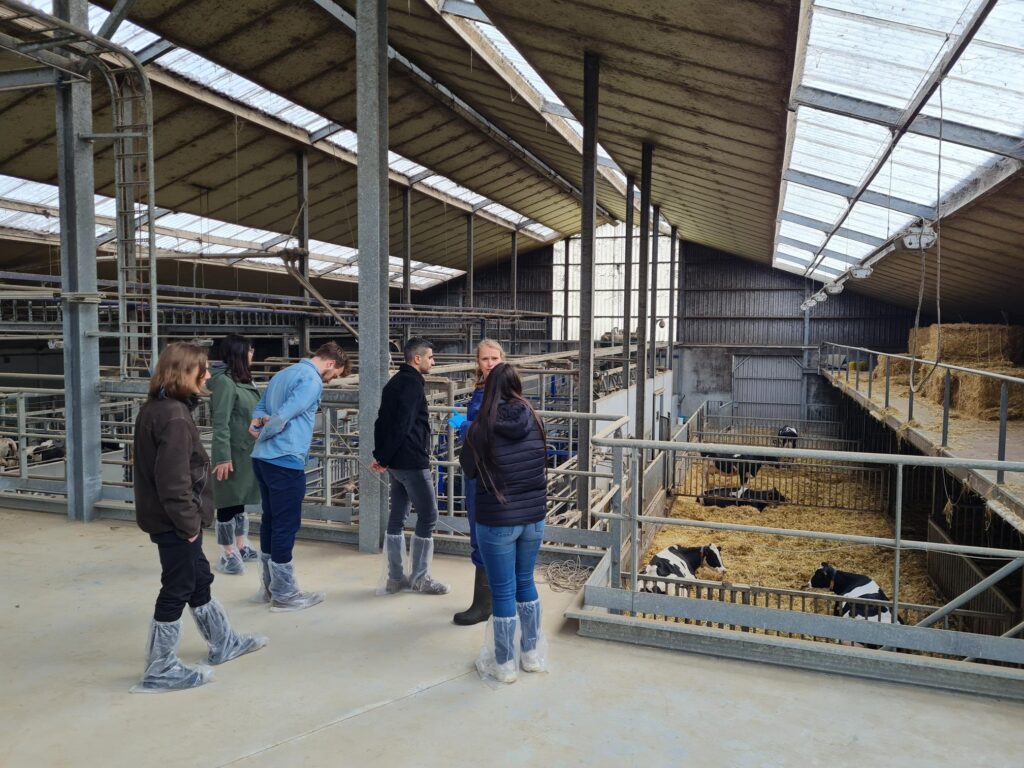
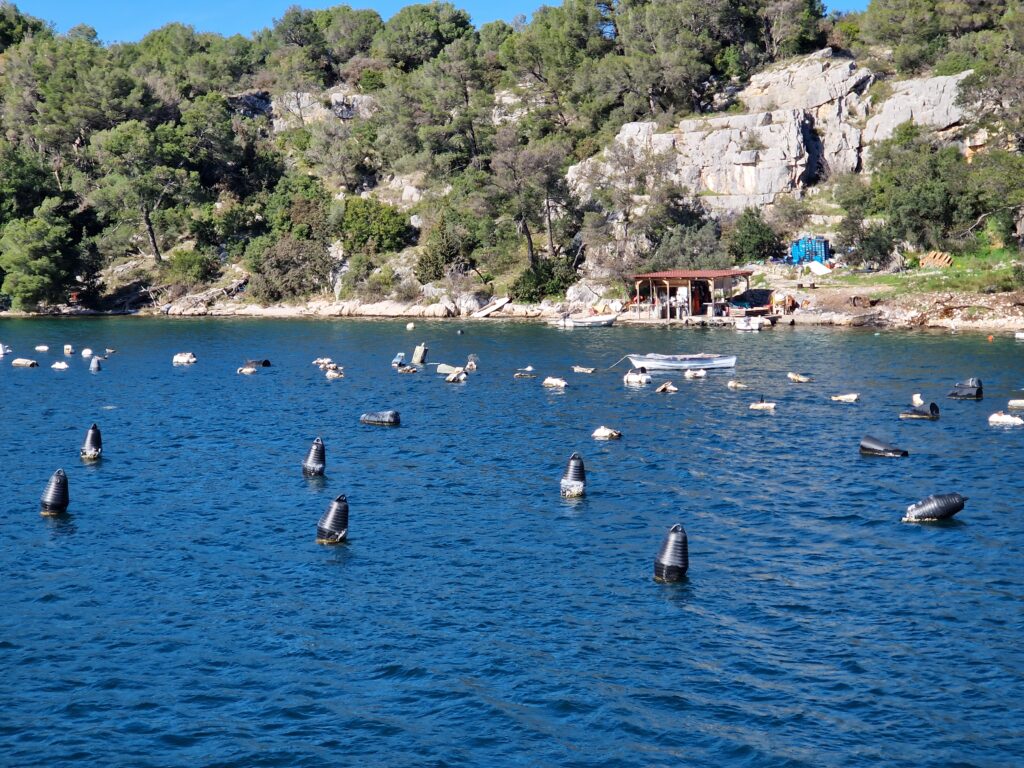
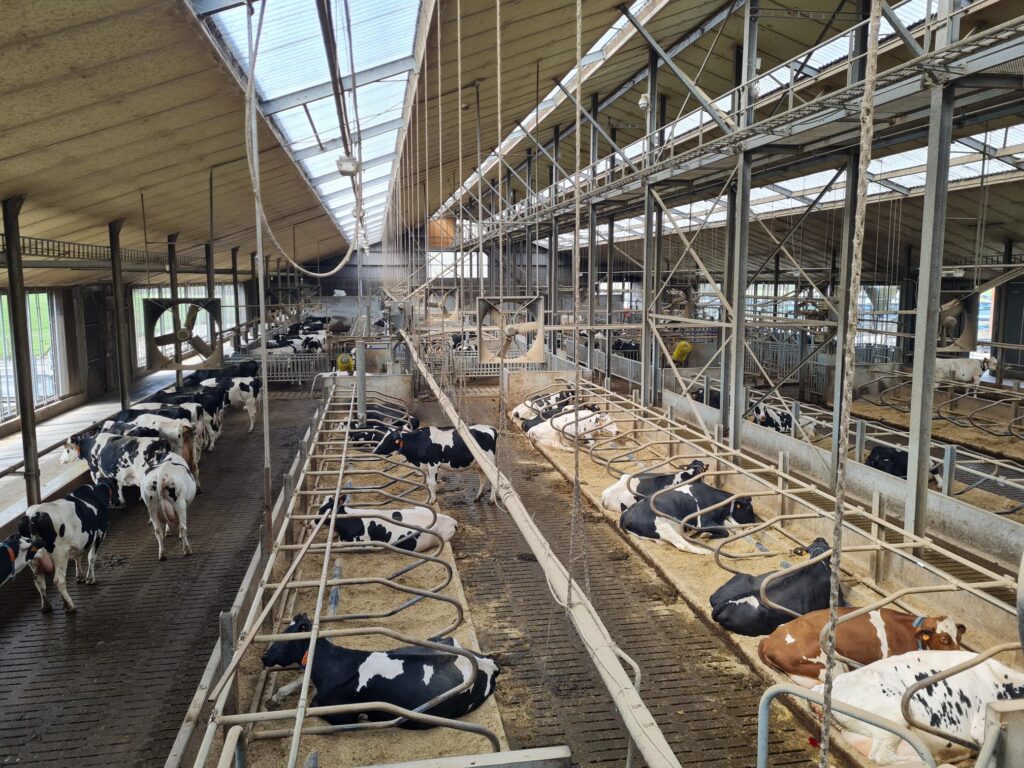

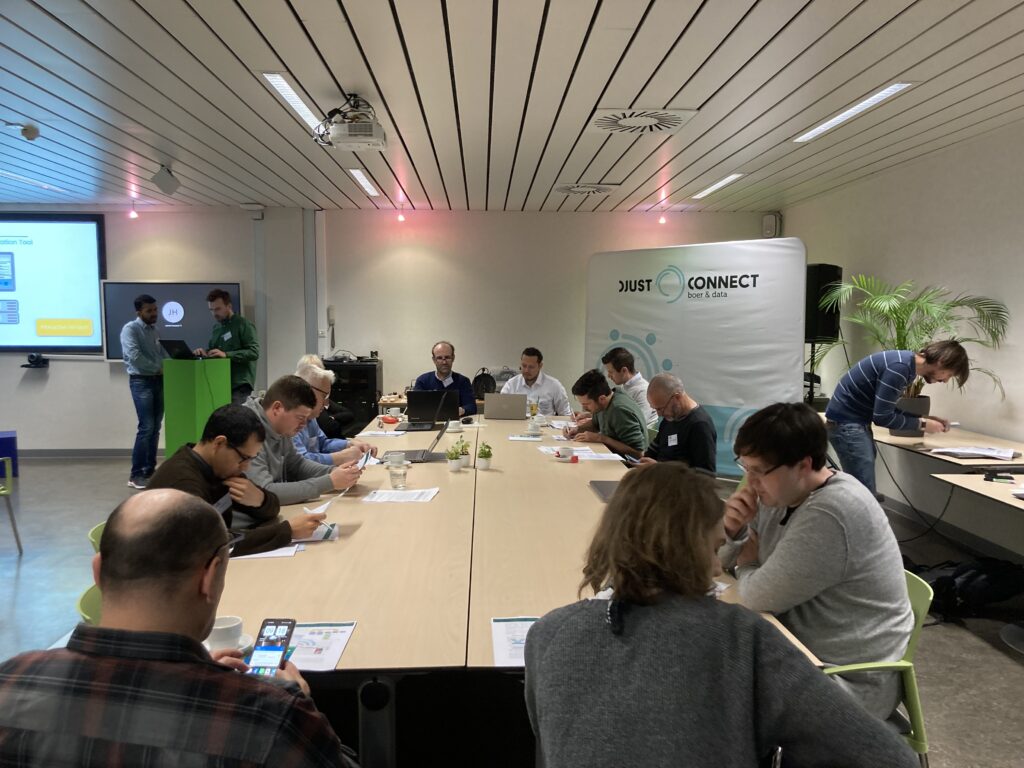
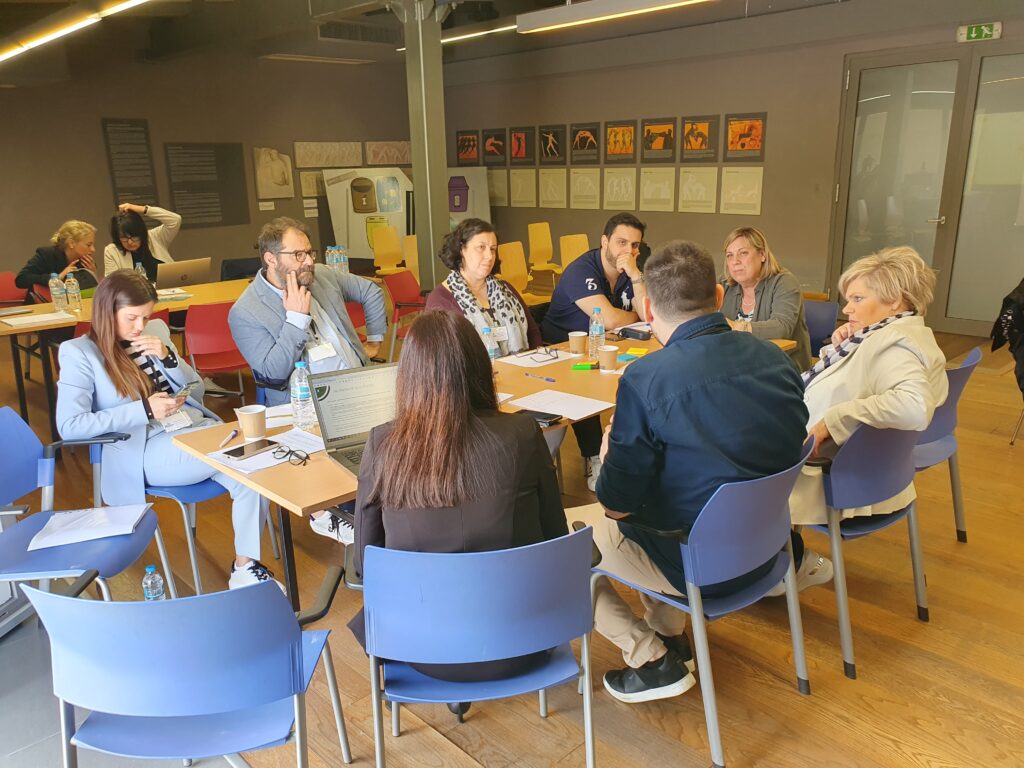
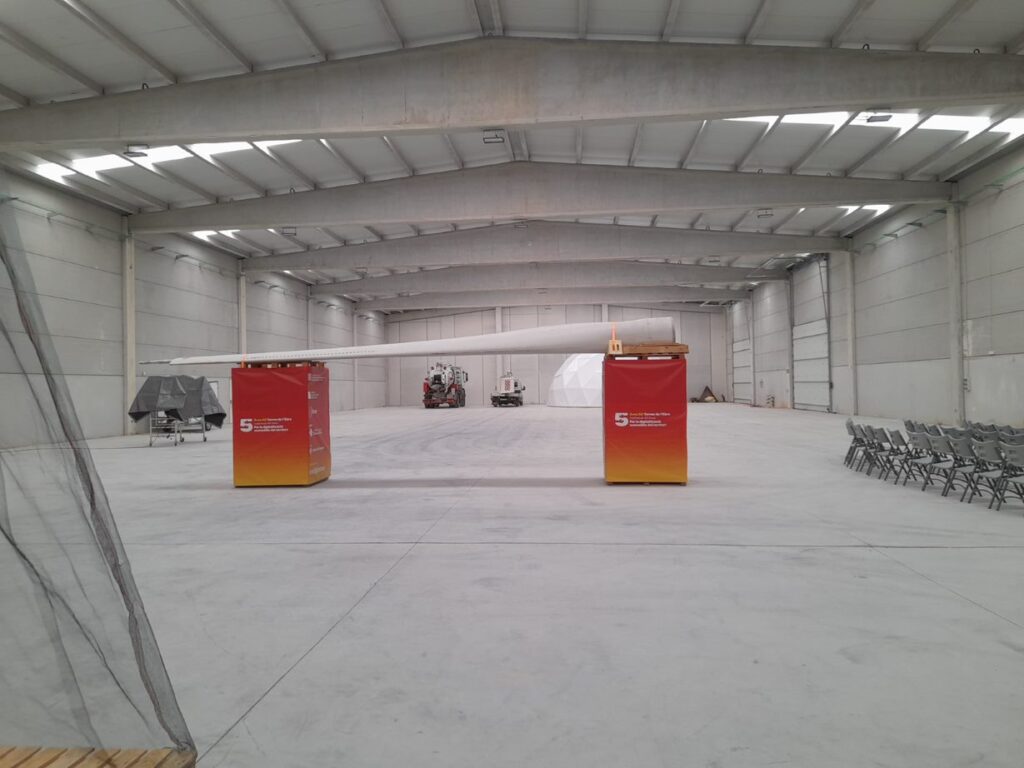

Funded by the European Union. Views and opinions expressed are however those of the author(s) only and do not necessarily reflect those of the European Union or the European Research Executive Agency (REA) (granting authority). Neither the European Union nor the granting authority can be held responsible for them.

